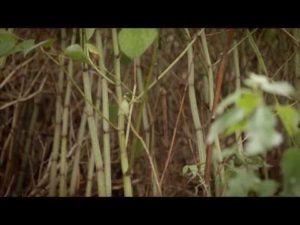Warm start puts Japanese knotweed on track for early emergence
The unseasonably warm start to the year could have an impact on the growing season for Japanese knotweed, according to a national trade body.
Japanese knotweed lives through winter in the soil and starts to sprout in the warmer temperatures of spring.
But the current weather conditions could push the plant’s growth pattern weeks ahead of its usual pattern according to experts.
Dr Peter Fitzsimons is the Invasive Weed Control Group Technical Manager of the Property Care Association (PCA) and is keeping a watching brief on the situation.
He said:
“Traditionally the growing season for Japanese knotweed begins in April, with some variation from north to south nationally, but in 2017 there were reports of the plant beginning to grow in March.
“The Beast from the East put the growing season last year back to a more normal timeline, but the climate so far is looking like it will provide the type of conditions for Japanese knotweed to take hold earlier again this year.
“Areas where the ground has retained moisture are likely to be particularly attractive to the plant.”
The presence of Japanese knotweed can devalue land and property and lead to the refusal of mortgages on properties affected by it and the PCA is urging caution and prompt action in tackling it.
Dr Fitzsimons added:
“Japanese knotweed is a nuisance plant because it grows so rapidly and is capable of causing disruption around buildings, but we know it can be controlled, like other plants, and managed like many property problems, in that it can be identified and treated with minimal impact.
“However, its effective eradication is a job for the experts and the earlier that work takes place the better, so it’s a good idea for anyone who thinks they might have an issue to obtain a professional opinion.
“Currently, the law puts the onus squarely on landowners to control and remediate Japanese knotweed infestations, particularly near houses, as soon as they come to light. In the case of property development removal is often the only viable solution and this needs to be handled by qualified knotweed surveyors.
“Advice sought quickly will help to control and manage the situation effectively.”
The PCA’s Invasive Weed Control Group signposts the public and private sectors to professional specialist invasive weed control contractors and consultants.
The Association also has a library of information including guidance notes, information leaflets and a Code of Practice – all available for free download – to provide insight and guidance on the issue www.property-care.org/professionals/invasive-weed-control/invasive-weed-control-technical-document-library
A short film is also available – PCA Video guide to dealing with Japanese Knotweed
Kindly shared by Property Care Association



















